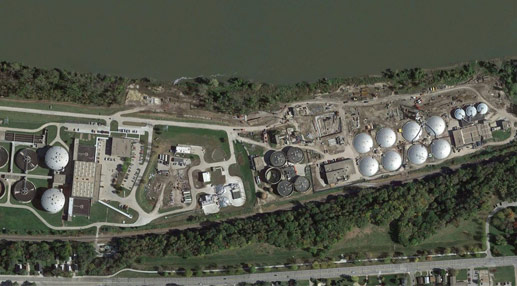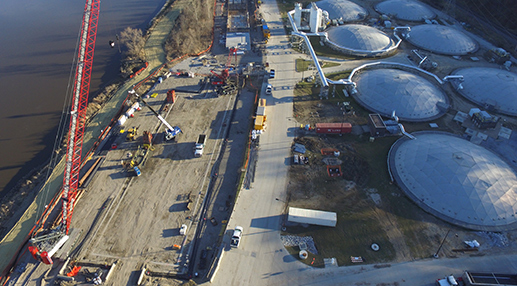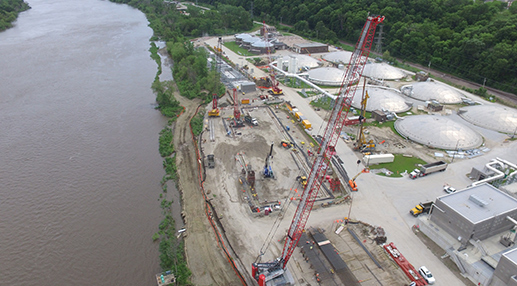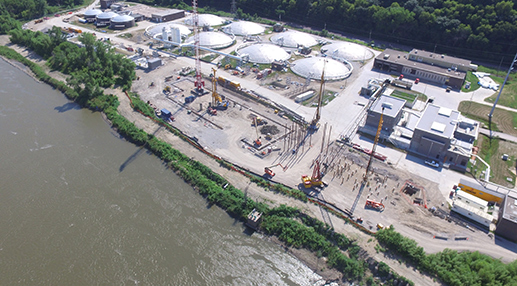Missouri River Wastewater Treatment Plant
Quick Facts
- 2nd diaphragm wall in metro area
- 75’ deep slurry drilled piers
- 36 projects over 10 years
- $100M project cost
Services
- Geotechnical Engineering
- Materials Testing and Special Inspections
- Instrumentation
Thiele Geotech, Inc. performed both geotechnical exploration and materials testing for the highly complex Missouri River WWTP CSO improvements constructed in three separate phases. The total project cost is estimated at $100 million. The first phase construction began in 2012 and included complex shoring and excavation design to reach grades where facilities were added to treat high strength industrial waste from the South Omaha Industrial Area. The structures in Phase 1 were supported on deep foundations consisting of drilled piers, driven pipe pile, and auger cast in place piles. Construction for the second phase, where facilities were added and rehabilitated to increase capacity, is nearly complete and required the use of 75 feet deep, slurry drilled piers to support the structures. Construction for the third phase, which will disinfect flow in excess of biological treatment capacity, is currently under construction. This phase features the second only diaphragm wall to be constructed in the Omaha Metro area. This wall will extend to a depth that allows for an 85 feet deep excavation to be made directly adjacent to the Missouri River. Excavation will be completed in a top down manner with extensive internal bracing being added as the excavation progresses. For the above improvements, Thiele Geotech, Inc. worked on over 36 projects during the three phases of construction over a span of 10 years.
Thiele Geotech, Inc. performed the geotechnical exploration during the design of the deep foundations consisting of drilled piers, driven pipe pile, and auger cast in place piles. Materials testing was performed on soils and concrete. During the construction phase, Thiele Geotech, Inc. observed reinforced concrete, structural masonry and welded and bolted connections. Additional special testing included a slope stability study, instrumentation (inclinometers, vibrometers), soil cement mix design for the riverfront stabilization, shoring design and design of crane pads to access critical areas along the river.




